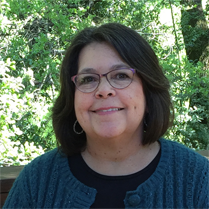Snuggle Time to Support Our Kids’ Reading Skills
During the holiday season, it is important to take the time to snuggle with our children and reflect on all that is good in our lives. We can also help our children increase their reading readiness abilities by developing the following daily practices with each child: [Read more…]

Danielle’s first step in education did not begin with education at all. It began with her first love for science. She received a B.S. in Biological Science, with a concentration in Molecular Biology. Her five years of experience as a chemist in the biotech industry at SYVA and Dade Behring Diagnostics include both areas of quality control and research and development. Her contributions were qualifying products for release to sell to the diagnostic market as well as developing new diagnostic technology for immunoassay detection. Danielle’s subtle transition to discovering her passion for education was through the birth of her daughter. She became a stay at home mom. Her uber volunteerism at her daughter’s elementary school gained her access to her path of education. She now holds a multiple subject teaching credential and M.A. in Education from National University. She has over ten years of experience at Sakamoto Elementary School as an educator in kindergarten, sixth grade, second grade, and a 2/3 combination class. Her teaching is rooted in a constructivist model while fostering independence and accountability in the classroom.
 How Public Charter Schools Can Partner with Your Kids’ Schools
How Public Charter Schools Can Partner with Your Kids’ Schools
 Back to School, Already?
Back to School, Already?